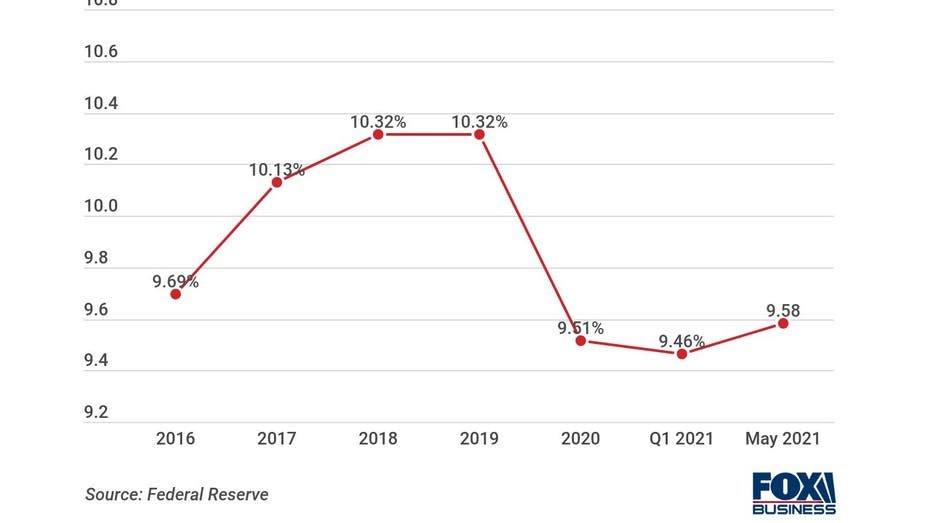Tax havens, and their legal implications, have become a hot topic of discussion for both individuals and businesses alike. What are tax havens, you might ask? Well, simply put, they are countries or territories that offer favorable tax laws and regulations, enticing individuals and corporations to take advantage of their low or non-existent tax rates. However, while tax havens may seem appealing and attractive, diving into their world without fully understanding the legal implications can lead to serious consequences. In this article, we will delve into the intricate web of tax havens and shed light on their legal ramifications, ensuring you are equipped with the knowledge needed to navigate this complex landscape.
Paragraph 1: Introduction to tax havens and their allure.
Paragraph 2: Brief explanation of tax havens and their purpose.
Paragraph 3: Highlighting the importance of understanding legal implications.
Paragraph 4: Preview of the article’s aim and what readers can expect.
What are Tax Havens and Their Legal Implications
Tax havens, often referred to as offshore financial centers, are jurisdictions known for their favorable tax regimes and minimal or no taxation on foreign individuals and companies. These countries or territories attract businesses and individuals seeking to minimize their tax obligations legally. However, the legal implications surrounding tax havens vary significantly across jurisdictions and can have far-reaching consequences for both individuals and governments. In this article, we will explore what tax havens are, how they operate, and the legal implications associated with their use.
The Definition and Characteristics of Tax Havens
A tax haven is typically a country or territory that offers various financial advantages to individuals and businesses, primarily through low or no taxation, strict banking secrecy laws, and lenient regulatory environments. Here are some key characteristics of tax havens:
1. Low or No Taxation: Tax havens often impose minimal or no taxes on certain types of income, such as capital gains, dividends, and corporate profits. This favorable tax treatment attracts individuals and businesses seeking to reduce their tax liabilities.
2. Banking Secrecy: Tax havens usually have strict banking secrecy laws that protect the privacy of account holders. Financial institutions are not required to disclose client information to tax authorities or foreign governments, making it easier for individuals and businesses to hide their wealth and income.
3. Lack of Transparency: Tax havens often have limited or non-existent reporting requirements, allowing individuals and companies to avoid disclosing financial information to tax authorities in their home countries. This lack of transparency makes it challenging for governments to track and tax offshore income and assets.
4. Lenient Regulation: Tax havens often have less stringent financial regulations compared to major economies. These relaxed regulations attract businesses looking to engage in activities that may be restricted or prohibited in other jurisdictions, such as offshore banking, trusts, and shell companies.
How Tax Havens Operate
Tax havens employ various strategies to attract individuals and businesses seeking to minimize their tax burdens. Here are some common mechanisms used by tax havens:
1. Tax Incentives: To lure foreign investors, tax havens offer tax incentives such as zero or minimal taxation on specific types of income or assets. These incentives may include tax holidays, preferential tax rates, or tax exemptions for specific industries or activities.
2. Double Taxation Treaties: Tax havens often enter into bilateral or multilateral agreements with other countries to avoid double taxation. These treaties ensure that income earned in one jurisdiction is not taxed again when repatriated to another jurisdiction, further reducing tax liabilities for individuals and businesses.
3. Trusts and Offshore Entities: Tax havens provide flexible legal frameworks for setting up trusts and offshore entities like International Business Companies (IBCs) and Limited Liability Companies (LLCs). These structures allow individuals and businesses to hold and manage assets, conduct financial transactions, and minimize tax liabilities in a more discreet and tax-efficient manner.
4. Banking Secrecy Laws: Strict banking secrecy laws in tax havens ensure the confidentiality of financial transactions and account information. Financial institutions in these jurisdictions are prohibited from sharing client information with foreign tax authorities, protecting the anonymity of account holders and their assets.
Legal Implications of Using Tax Havens
While tax havens offer attractive financial benefits, there are legal implications associated with their use. It is essential to understand these implications to ensure compliance with tax laws and avoid potential consequences. Here are some legal implications of using tax havens:
1. Tax Evasion and Avoidance: Utilizing tax havens to hide income or assets with the intent of evading or significantly reducing tax liabilities is considered tax evasion and is illegal in most jurisdictions. Tax avoidance, on the other hand, involves using legal loopholes and strategies to minimize tax obligations. The distinction between tax evasion and avoidance can be complex and may depend on the specific laws of each jurisdiction.
2. Increased Scrutiny and Regulatory Measures: Governments worldwide are increasingly cracking down on tax evasion and aggressive tax planning strategies involving tax havens. They have strengthened legislation, introduced stricter reporting requirements, and implemented international initiatives like the Common Reporting Standard (CRS) to enhance transparency and exchange of financial information between countries.
3. Potential Penalties and Legal Consequences: Engaging in illegal tax evasion activities can result in severe penalties, including criminal charges, fines, and imprisonment. Governments have implemented measures to detect undisclosed offshore assets and income, imposing substantial penalties on individuals and businesses found to be non-compliant.
4. Reputational Risks: Using tax havens can have reputational implications, especially for businesses. Public perception regarding the use of offshore jurisdictions for tax purposes has become increasingly negative. Companies may face public scrutiny, damage to their brand image, and loss of customer trust if their tax practices are perceived as unethical or potentially illegal.
5. Increased Compliance Burdens: Tax legislation and reporting requirements have become more complex and stringent, making it more challenging for individuals and businesses to navigate the tax landscape. Governments have introduced measures to identify and penalize aggressive tax planning and impose additional reporting obligations on individuals with offshore assets.
Tax havens provide individuals and businesses with attractive financial advantages through favorable tax regimes and banking secrecy. However, the legal implications surrounding tax havens are significant and require careful consideration. Governments are actively implementing measures to combat tax evasion and improve tax transparency globally. It is essential for individuals and businesses to stay informed about tax laws, consult with legal and tax professionals, and ensure compliance to avoid potential legal consequences.
What Are Tax Havens And How Do They Work?
Frequently Asked Questions
Frequently Asked Questions (FAQs)
What are tax havens?
Tax havens refer to countries or territories that offer favorable tax conditions and regulations for individuals and businesses. These jurisdictions often impose low or zero taxes on income, capital gains, or wealth, attracting individuals and companies seeking to minimize their tax liabilities.
What are the legal implications of using tax havens?
Using tax havens can have both legal and ethical implications. From a legal standpoint, if individuals or companies misrepresent their residency or engage in illegal activities to evade taxes, they can face legal consequences, such as fines or imprisonment. Furthermore, tax authorities in their home countries may challenge the use of tax havens, resulting in additional taxes, penalties, or audits.
How do tax havens operate legally?
Tax havens operate legally by implementing tax laws and regulations that allow them to attract individuals and businesses. These jurisdictions establish specific tax regimes, such as territorial taxation or ring-fencing, which create favorable conditions for foreign investments and protect the financial privacy of individuals.
Do all tax havens facilitate illegal tax evasion?
No, not all tax havens facilitate illegal tax evasion. While some tax havens may have lax regulations and limited transparency, not all individuals or companies using tax havens are engaged in illegal activities. It is essential to differentiate between legal tax planning, which involves using legal structures and strategies to minimize tax obligations, and illegal tax evasion, which involves deliberately hiding income or assets to avoid paying taxes.
How can tax havens contribute to global tax inequality?
Tax havens can contribute to global tax inequality by enabling wealthy individuals and multinational corporations to exploit loopholes and avoid paying their fair share of taxes. This can result in reduced tax revenues for countries where these entities operate, potentially leading to limited resources for public services and an increased burden on middle-income taxpayers.
Are all tax havens located in offshore jurisdictions?
No, not all tax havens are located in offshore jurisdictions. While many tax havens are offshore financial centers, some landlocked countries or territories with favorable tax regimes can also be considered tax havens. Additionally, certain regions within larger countries may have tax laws and regulations that attract businesses or individuals seeking to benefit from advantageous tax conditions.
What measures are being taken to address tax havens?
International organizations, such as the Organisation for Economic Co-operation and Development (OECD), are working toward addressing tax havens and promoting tax transparency. Initiatives like the Common Reporting Standard (CRS) require participating jurisdictions to automatically exchange financial account information, making it more challenging to hide assets and income in offshore tax havens.
How can individuals and businesses ensure tax compliance?
To ensure tax compliance, individuals and businesses should consult with tax professionals and adhere to the tax laws and regulations of their respective jurisdictions. It is crucial to disclose all relevant income and assets accurately, avoid engaging in illegal tax evasion practices, and stay informed about any changes in tax regulations or reporting requirements.
Final Thoughts
Tax havens are jurisdictions that offer favorable tax conditions to individuals and businesses, allowing them to minimize their tax liabilities. These locations attract investors by offering low or zero taxes, strict bank secrecy laws, and minimal financial regulations. However, tax havens often face legal implications, as their practices can be seen as facilitating tax evasion, money laundering, and other illicit activities. Governments worldwide have taken steps to address these concerns by implementing regulations and initiatives to combat tax evasion and increase transparency. In recent years, international cooperation and efforts from organizations like the OECD have resulted in greater scrutiny and pressure on tax haven jurisdictions to conform to global standards. Understanding tax havens and their legal implications is crucial in ensuring fair taxation and preventing illicit financial activities.



